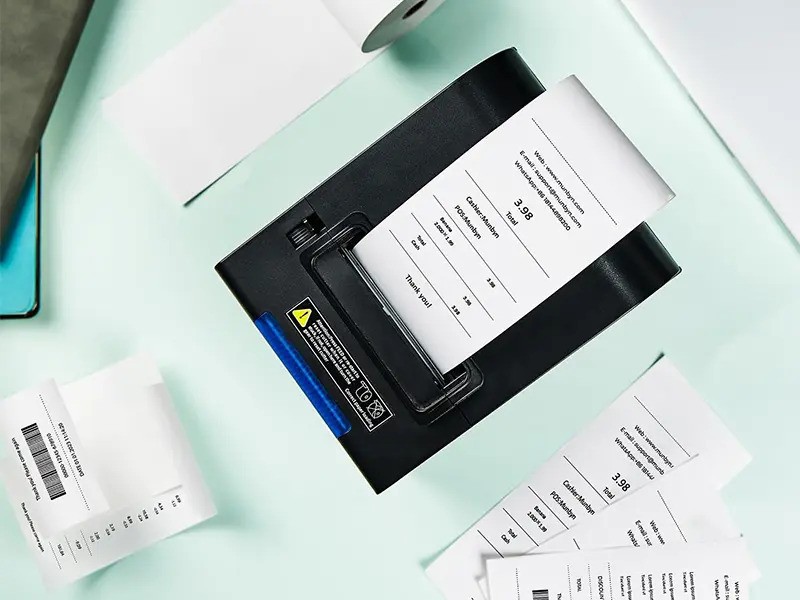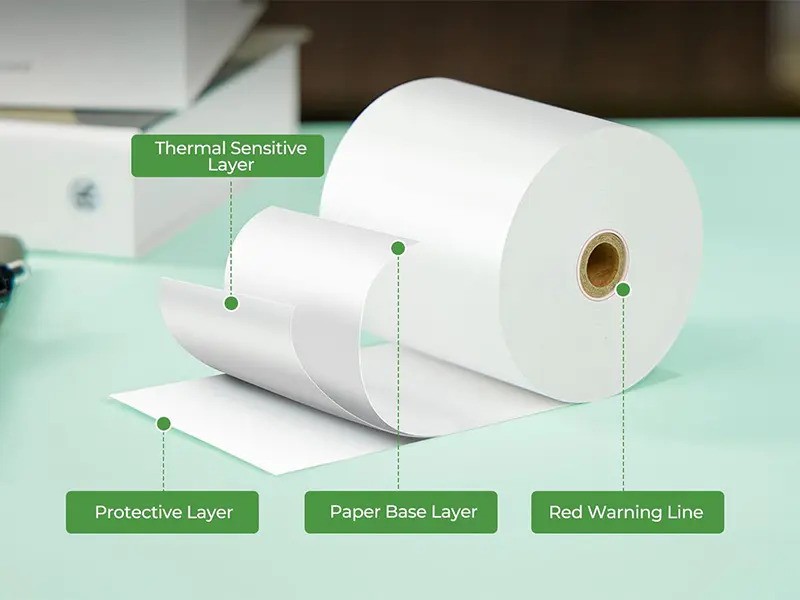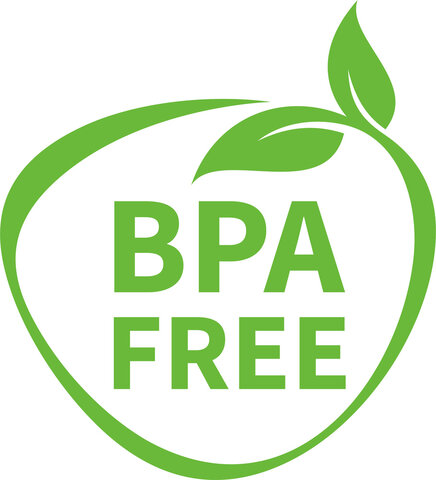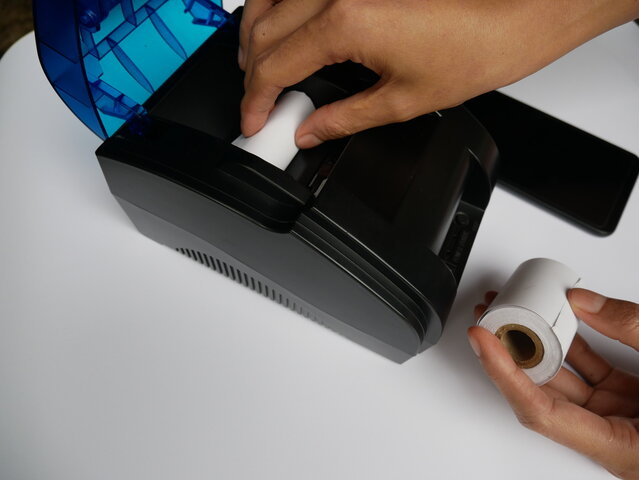
Thermal paper is everywhere—receipts, tickets, and labels—but have you ever wondered if it can be recycled? The answer isn't simple.
Unlike regular paper, thermal paper contains chemicals like BPA or BPS, which can harm both the environment and human health. Recycling it incorrectly may spread these harmful substances.
So, what’s the best way to handle thermal paper waste? Can BPA-free thermal paper be recycled? In this post, we’ll explore everything you need to know, from recycling options to eco-friendly alternatives.
What Is Thermal Paper?
Thermal paper is a special type of paper designed for heat-sensitive printing. Unlike regular paper, it does not require ink or toner. Instead, it reacts to heat, making it an essential material for businesses that require quick, efficient printing.

How Does Thermal Paper Differ from Regular Paper?
| Feature | Thermal Paper | Regular Paper |
| Printing Method | Uses heat-sensitive coating | Requires ink or toner |
| Durability | Can fade over time if exposed to heat, light, or moisture | More resistant to fading |
| Chemical Content | Often contains BPA or BPS | No chemical coatings |
| Recyclability | Limited due to chemical coatings | Fully recyclable |
Regular paper requires ink or toner for printing, while thermal paper uses a chemical coating that reacts to heat. This makes thermal paper ideal for quick-printing needs but also raises concerns about its recyclability and health impact.
Common Uses of Thermal Paper
Thermal paper has become essential in numerous industries due to its reliability and convenience. Its most common applications include:
Point-of-Sale Receipts - The most frequently encountered use of thermal paper
Event and Transportation Tickets - Movie theaters, concerts, trains, and airlines
Shipping and Product Labels - Warehouse logistics and retail price tags
Medical Charts and Test Results - Healthcare documentation
ATM Transaction Records - Banking and financial institutions
The Unique Printing Process
What makes thermal paper truly special is its innovative printing mechanism. Unlike traditional printing that deposits ink onto paper, thermal printing works through a chemical reaction:
The thermal printer contains a heating element called a thermal head
When activated, this head applies precise heat patterns to the paper
The heat causes the chemical coating on the paper to change color, typically turning black
Text and images appear without any ink being transferred to the paper
This inkless printing process provides several advantages, including reduced maintenance costs, quieter operation, and faster printing speeds. However, this same chemical composition that makes thermal paper so effective also creates challenges for recycling and environmental sustainability.
Why Can't Traditional Thermal Paper Be Recycled?
Thermal paper is widely used for receipts, labels, and tickets, but its recyclability is a major concern. Unlike standard paper, traditional thermal paper contains chemical coatings that pose health and environmental risks. These coatings prevent proper recycling, making disposal a challenge.
Chemical Coating Composition
Thermal paper is coated with chemicals that allow it to change color when exposed to heat. The most common chemicals used are:
Bisphenol A (BPA) – A synthetic compound known for its hormone-disrupting properties.
Bisphenol S (BPS) – A substitute for BPA, but with similar health concerns.
How These Chemicals Affect Recycling
Chemical Contamination – BPA/BPS coatings are not removed during the recycling process, contaminating new paper products.
Non-Biodegradable – These chemicals persist in the environment, leading to long-term pollution.
Cross-Contamination – If recycled with regular paper, BPA/BPS can end up in consumer products like tissues, paper towels, and food packaging.
Health Concerns with Thermal Paper
BPA and BPS are endocrine disruptors, meaning they interfere with hormonal functions. This can lead to various health issues, including:
| Health Risk | Impact of BPA/BPS Exposure |
| Hormonal Imbalance | Disrupts estrogen and other hormones |
| Reproductive Issues | Linked to fertility problems |
| Neurological Effects | Affects brain development and behavior |
| Increased Cancer Risk | Potential link to breast and prostate cancer |
| Cardiovascular Problems | Can contribute to heart disease |
How Thermal Paper Transfers Chemicals
When touched, BPA/BPS transfers to the skin and can enter the bloodstream.
The transfer rate increases if hands are wet, oily, or exposed to sanitizers.
Repeated handling (such as by cashiers) increases the risk of prolonged exposure.
Environmental Impact
When thermal paper enters recycling streams, it creates cascading environmental problems:
Cross-Contamination: BPA/BPS from thermal paper contaminates other recyclable paper products.
Consumer Exposure Loop: Contaminated recycled products (facial tissues, paper towels, shopping bags) bring these chemicals into even closer contact with consumers.
No Safe Disposal Alternative: Burning releases BPA/BPS into the atmosphere, while composting transfers these chemicals into soil and potentially groundwater.
Ecosystem Disruption: These chemicals can affect wildlife and plant development when released into natural environments.
The Evolution of BPA-Free and Phenol-Free Thermal Paper
As environmental awareness has grown and health concerns about traditional thermal paper have emerged, the industry has responded with innovative alternatives that address these critical issues while maintaining functionality.

Introduction to BPA-Free and Phenol-Free Thermal Paper
In response to rising consumer demands for safer products, manufacturers have developed new formulations of thermal paper that eliminate harmful chemicals while preserving print quality. These eco-friendly alternatives represent a significant advancement in thermal paper technology:
These advancements reflect the growing eco-consciousness of both businesses and consumers who are increasingly refusing to support companies that don't prioritize environmental responsibility.
How It Differs from Traditional Thermal Paper
The key differences between traditional and newer thermal paper formulations are substantial:
| Feature | Traditional Thermal Paper | BPA/Phenol-Free Thermal Paper |
| Chemical Composition | Contains BPA or BPS | Uses alternative, safer compounds |
| Environmental Impact | Contaminates recycling streams | Can be properly recycled |
| Health Risk | Transfers chemicals to skin | Minimal chemical exposure risk |
| Core Materials | Typically virgin materials | Often made from recycled materials |
| Cost | Generally less expensive | Slightly higher initial cost |
Can BPA-Free Thermal Paper Be Recycled?
Yes! Unlike traditional thermal paper, BPA-free and phenol-free versions can typically be recycled safely. According to POS Supply Solutions, phenol-free thermal paper can be recycled "in the 'mixed office paper' category of local recycling streams." This represents a significant environmental improvement over conventional thermal paper.
The recycling process for these safer papers includes:
Collection and sorting
De-inking (removal of chemical coating)
Pulping (conversion of fibers into slurry)
Manufacturing into new paper products
Major Brands and Companies Producing Safer Alternatives
Several companies have responded to the demand for safer thermal paper by producing BPA-free and phenol-free options. Some leading brands include:
POS Supply Solutions – Offers a range of BPA-free and phenol-free thermal paper rolls.
Blue4est® by Errebi – A recyclable thermal paper solution that does not require bisphenols.
Appvion – Manufactures eco-friendly, BPA-free receipt paper for retail businesses.
Koehler Paper Group – Known for its innovative, phenol-free thermal paper products.
Sunrise - Specialized in the production of BPA-free thermal paper using the latest technology
How to Properly Dispose of Thermal Paper
Disposing of thermal paper requires careful consideration due to the presence of BPA and BPS. Incorrect disposal methods can lead to chemical contamination in the environment. Below are the safest and most responsible ways to handle thermal paper waste.
Throwing It in the Trash: The Safest Option
The best way to dispose of thermal paper is to throw it in the trash. This prevents harmful chemicals from contaminating recycled paper products or entering the environment through composting.
✅ Why is this recommended?
Prevents BPA/BPS contamination in recycled materials like tissue or napkins.
Minimizes environmental pollution, as thermal paper chemicals do not break down easily.
Reduces direct exposure, keeping BPA and BPS from spreading to other surfaces.
✅ Proper handling techniques:
Avoid crumpling or tearing thermal paper, as this can release chemicals onto your skin.
Wash hands immediately after handling receipts.
Keep thermal paper separate from recyclable paper products to prevent contamination.
Shredding for Security Reasons
Thermal paper receipts often contain sensitive information such as credit card details and personal data. Shredding is an effective way to protect privacy, but it does not make thermal paper recyclable.
| Can shredded thermal paper be recycled? | ❌ No |
| Reason | Chemical coatings (BPA/BPS) still remain, contaminating other recyclables. |
| Solution | Shred for security, then dispose of it in the trash. |
Tip: If privacy is a concern, consider switching to digital receipts to eliminate the need for paper records.
Can Thermal Paper Be Composted?
No, thermal paper should not be composted. The BPA and BPS chemicals used in its coating can leach into the soil, harming plants, microorganisms, and water sources.
Why thermal paper cannot be composted:
Chemical contamination – BPA/BPS does not break down naturally in composting conditions.
Soil and water pollution – Harmful compounds may seep into the ground and affect surrounding ecosystems.
Potential health risks – If composted in gardens, chemicals could enter the food chain.
✅ Alternative Solution: Use BPA-free thermal paper, which may be compostable in specialized facilities. However, always check manufacturer guidelines first.
Burning Thermal Paper: Is It Safe?
Burning thermal paper is NOT a safe disposal method. The process releases toxic chemicals into the air, which can cause serious health and environmental issues.
⚠️ Dangers of burning thermal paper:
Air pollution – Releases BPA, BPS, and dioxins, harmful to humans and wildlife.
Health risks – Exposure to burned thermal paper fumes can cause respiratory issues and hormone disruption.
Environmental impact – Contributes to greenhouse gas emissions and long-term contamination.
Key Takeaways
❌ Thermal paper cannot be recycled or composted.
✅ Throwing it in the trash is the safest disposal method.
Shred receipts if they contain personal information before discarding.
Do NOT burn thermal paper due to toxic emissions.

How to Identify Recyclable Thermal Paper
Not all thermal paper is recyclable. Many receipts contain Bisphenol A (BPA) or Bisphenol S (BPS), which can contaminate the recycling process. Identifying BPA-free and phenol-free thermal paper is essential for safe disposal and environmental sustainability.
Testing Methods to Detect BPA/BPS
Before recycling, you can test thermal paper to determine if it contains BPA or BPS.
Simple identification methods:
| Test | How to Perform It | What It Tells You |
| Scratch Test | Lightly scratch the surface with a coin or fingernail. | If a dark streak appears, it likely contains BPA/BPS. |
| Label Check | Look for labels like "BPA-Free" or "Phenol-Free" on the receipt. | If labeled, it’s safer for recycling. |
✅ If the receipt lacks a BPA-free label, assume it contains harmful chemicals.
Which Types of Thermal Paper Can Be Recycled?
♻️ Only BPA-free and phenol-free thermal paper can be recycled under specific conditions.
⚠️ Always check local recycling rules, as policies vary. If in doubt, opt for BPA-free alternatives to reduce waste and environmental harm.
How to Reduce Your Use of Thermal Paper
As concerns about thermal paper waste and chemical exposure grow, businesses and consumers are looking for ways to minimize its use. Reducing thermal paper reliance not only helps the environment but also promotes safer and more sustainable alternatives.
Choosing Digital Receipts Instead
Switching to e-receipts is one of the most effective ways to reduce thermal paper consumption. Many businesses now offer digital receipt options, helping to:
✅ Reduce paper waste – Fewer printed receipts mean less landfill waste.
✅ Lower chemical exposure – No BPA/BPS contact from handling paper receipts.
✅ Improve record-keeping – Digital receipts are easier to store and track.
Businesses offering e-receipts:
Major retailers like Apple, Walmart, and Target provide email or SMS receipts.
Online stores automatically send electronic invoices instead of paper receipts.
Payment processors like Square and PayPal offer digital receipt integration.
Encouraging Retailers to Switch to BPA-Free Receipts
Consumers can influence businesses to adopt eco-friendly thermal paper. Encouraging retailers to use BPA-free and phenol-free receipts benefits:
Employees – Cashiers handle receipts all day, reducing their exposure to harmful chemicals.
Customers – BPA-free receipts minimize the health risks of handling traditional thermal paper.
The Environment – Safer paper options reduce toxic waste in landfills.
How to request BPA-free receipts:
Ask store managers if they offer BPA-free paper.
Contact businesses through email or social media requesting safer alternatives.
Support stores that already use eco-friendly receipt options.

Alternatives to Thermal Paper Receipts
Several viable alternatives to traditional thermal paper exist:
Traditional ink-based receipts - While less common today, these classic receipts use actual ink and are recyclable.
Mobile payment solutions that offer integrated digital receipts:
Apple Pay
Google Pay
PayPal
Venmo
Store-specific apps
Receipt management apps that digitize and organize paper receipts:
Conclusion
Thermal paper contains BPA or BPS, making it hard to recycle. These chemicals contaminate paper products and pose health risks.
BPA-free and phenol-free thermal paper can be recycled, but always check local guidelines. Choosing digital receipts helps reduce waste and exposure.
Dispose of thermal paper responsibly by throwing it in the trash. Never compost or burn it due to toxic chemical release.
Encourage businesses to switch to BPA-free alternatives. Opt for eco-friendly choices and spread awareness to protect health and the environment.




























